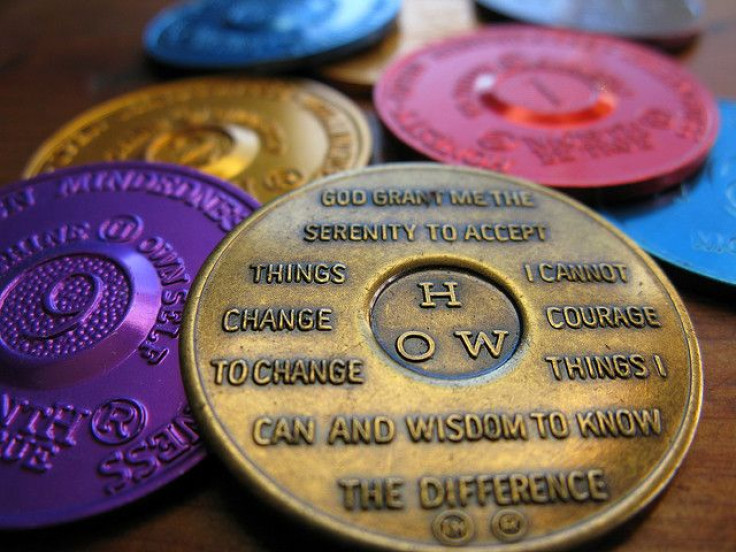Staying Sober: AA Meetings And Face-To-Face Groups More Effective Than Facebook, Online Support

The foundation of any 12-step program, including the mothership of them all, Alcoholics Anonymous, is its meetings. In “the rooms,” people get a chance to share not only their problems but also their insights. Though Facebook support groups may help people with substance abuse issues, say researchers from Fielding Graduate University, traditional face-to-face meetings are more effective for people trying to remain sober.
Worldwide, one in every four people use social media, and analysts predict that number will rise from about 1.47 billion in 2012 to nearly 2.55 billion in 2017, according to the new study. Millennial technologies offer previously unimaginable opportunities, yet we also may have mixed feelings about using the new media… even while we do so. For instance, experimental data indicates posting on Facebook makes us happier, yet 33 percent of users report being unhappy while using the social media site.
“For those struggling with a dependence to alcohol and/or other mind-altering substances, new computer-mediated platforms provide even the most reticent, introverted, shame-based, compromised, discomfited or isolated individual the option to connect with online sobriety support communities, including, but not limited to, Alcoholics Anonymous,” wrote Dr. Donald S. Grant, first author of the new study and a professor at Fielding's School of Psychology, in a past research paper.
In a 2014 grant announcement, the National Institutes of Health suggested “social media are increasingly affecting people's everyday behavior, including their attitudes relevant to health.” Based on this, Grant and his co-author Dr. Karen Dill-Shackleford wondered, What role does social media play in sobriety support?
Will Digital Natives Come to Different Conclusions?
To investigate, Grant and Dill-Shackleford began by recruiting adults (141 female, 55 male) who used both in-person and online sobriety support systems. More than 90 percent of the participants had been in recovery for more than a year. About 69 percent were between the ages 40 and 59, with strong representation in the age group of 30 to 39. Most (86 percent) self-identified as Caucasian and the same proportion said they were from the United States, though some resided in Canada, England, India, China, Australia, Sweden, Ireland, and Indonesia.
After each participant completed a survey measuring beliefs, behaviors, and opinions, Grant and Dill-Shackleford collected the results and compared both the benefits and downsides of face-to-face and online sobriety support systems. What did the co-authors discover?
In general, participants prefer face-to-face meetings. Still, the researchers recorded a moderate decrease in face-to-face meeting attendance balanced by an increase in online support. Participants reported they were less likely to be dishonest in face-to-face meetings, yet, paradoxically, they also said they were more likely to be drunk or high in meetings compared to while online. They also were more likely to lie about their sober time in-person.
Despite such inconsistencies, people who attended more face-to-face meetings had greater success in achieving and maintaining sobriety than those who used more online support, the results indicated. The authors also correlated length of time sober with both in-person meeting and online participation.
“Results indicated a significant positive correlation between face-to-face sobriety support use and length of time sober and a negative correlation between online sobriety support use and length of time sober,” wrote the authors, “thus…greater participation in online sobriety support predicts less time sober.”
The participants predicted that support will continue to migrate online, the researchers noted, adding that, since their participants “skewed old,” any preference for — and greater benefits to — in-person meetings might be diminished over time. Digital natives may see many things, including recovery, quite differently.
Source: Grant DS, Dill-Shackleford KE. Using Social Media for Sobriety Recovery? Preferences, Beliefs, Behaviors, and Surprises from Users of Online and Social Media Sobriety Support. American Psychological Association Convention. 2015.



























